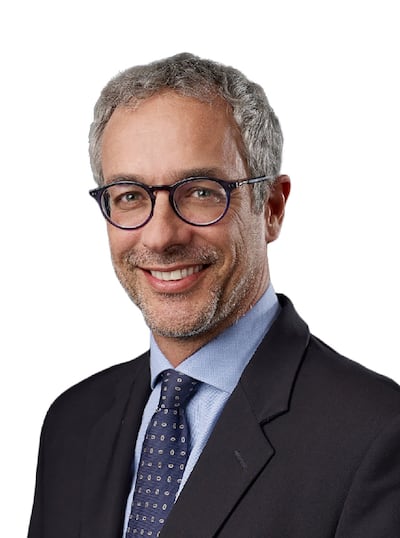Saudi Arabia's Acwa Power is working on a “recipe” to finance sustainable infrastructure projects in Africa, given the continent's opportunities and risks, its chief executive has said.
The Riyadh-based company is looking for the best development institutions to work with local governments on the continent and foster dialogue with private investors while ensuring that "proper” guarantees are in place for the investments, Marco Arcelli told The National.
“Africa, to me, is very interesting as a case because the most successful developer built 1.5 to 2 gigawatts in 15 years. So, the whole continent is quite fragmented and slow in development,” he said ahead of the Cop28 climate conference in Dubai.
“We're trying to crack a recipe for how we [can] help accelerate adoption so that they can participate in sustainable economic growth.”

In many developing countries, investors are reluctant to allocate funds to climate change mitigation projects due to high perceived risks.
That has pushed up the cost of capital, with banks charging higher interest rates on loans meant for those projects.
“You have seen a lot of companies in the past few years have retrenched from emerging markets. So, clearly, that is an indication of the risk that I think becomes even more important as interest rates increase,” Mr Arcelli said.
Acwa Power, which is backed by the Public Investment Fund, has operations in 12 countries across the Middle East, Africa, Central Asia and South-East Asia.
Its portfolio includes 77 projects in operation, advanced development, or construction – with an investment value of $82.8 billion – and the capacity to generate 53.69 gigawatts of power and manage 7.6 million cubic metres of desalinated water a day.
The company on Wednesday announced a new green hydrogen project in Uzbekistan.
The first phase, a 3,000-tonne green ammonia pilot project, is already under way. Upon the second phase's completion, 2.4 gigawatts of wind energy will drive an annual production of 500,000 tonnes of green ammonia.
The green ammonia would be supplied to fertiliser manufacturers in Uzbekistan, which exports one million tonnes of fertiliser to Europe every year, Mr Arcelli said.
The deal is significant in the context of new carbon-compliance requirements in the EU.
The EU’s Carbon Border Adjustment Mechanism (CBAM), which entered its transitional phase on October 1, is set to apply to imports of certain goods whose production is carbon-intensive, such as cement, iron and steel, aluminium, fertilisers and electricity.
“They [Uzbekistan] need to decarbonise the economy, so they're really acting fast … [it] has one of the most interesting decarbonisation programmes in the world,” Mr Arcelli said.
Uzbekistan is working to improve its energy and power generation sectors, harnessing its natural resources and seeking investments from overseas.
The Central Asian country has also unveiled plans to raise the share of renewable energy in total electricity supply to 25 per cent by 2030, from 10 per cent in 2020.
Uzbekistan, Acwa Power’s second-largest market in terms of investments, has clear renewable energy targets for 2030, which “mobilises everybody to start a concrete discussion with private investors”, Mr Arcelli said.





